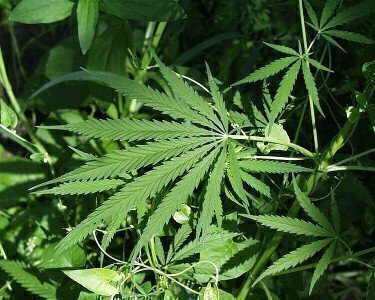Over the objections of Justice Clarence Thomas, the eight-person Supreme Court has denied an effort by two neighboring states to limit Colorado’s legalized marijuana law.
 The full Court denied on Monday the case of Nebraska and Oklahoma v. Colorado, which is an original jurisdiction case where the complaint between the states was sent directly to the Supreme Court, with no lower court involved.
The full Court denied on Monday the case of Nebraska and Oklahoma v. Colorado, which is an original jurisdiction case where the complaint between the states was sent directly to the Supreme Court, with no lower court involved.
The Constitution’s Article III allows the Supreme Court to consider and accept these unusual cases, which usually involve boundary disputes. It says that “[i]n all cases affecting ambassadors, other public ministers and consuls, and those in which a state shall be party, the Supreme Court shall have original jurisdiction.”
At least four of the eight Justices needed to accept a case for a full hearing at the Court. Justice Thomas wrote a dissent, which was joined by Justice Samuel Alito.
“I would not dispose of the complaint so hastily. Because our discretionary approach to exercising our original jurisdiction is questionable, and because the plaintiff States have made a reasonable case that this dispute falls within our original and exclusive jurisdiction, I would grant the plaintiff States leave to file their complaint,” Thomas wrote.
Thomas said the case represented a chance for the entire Court to evaluate how it handles all original jurisdiction cases.
“This case involves a suit brought by two States against another State, and thus presents an opportunity for us to reevaluate our discretionary approach to our original jurisdiction,” he wrote. “The complaint, on its face, presents a 'controvers[y] between two or more States' that this Court alone has authority to adjudicate. The plaintiff States have alleged significant harms to their sovereign interests caused by another State. Whatever the merit of the plaintiff States’ claims, we should let this complaint proceed further rather than denying leave.”
The lawsuit in Nebraska and Oklahoma v. Colorado was about the commercial sales of marijuana for recreational use in Colorado. Nebraska and Oklahoma brought the suit in December 2014. The two states contended the Supreme Court was the only venue where they could seek relief under the Constitution’s Supremacy Clause, arguing that “the federal government has preeminent authority to regulate interstate and foreign commerce, including commerce involving legal and illegal trafficking in drugs such as marijuana.”
Nebraska and Oklahoma weren’t asking that Colorado’s now-legal personal marijuana use stop or to go back to its previous laws that prosecuted marijuana use as a crime in the state. Instead, the two states wanted part of Colorado’s plan disallowed that allows for commercial growing and distribution of marijuana with the state.
The case took a delayed path to the Court. Last December, Solicitor General Donald Verrilli filed the Justice Department’s legal opinion, which the Court had asked for on May 4, 2015, just three days after the petition was first considered in private conference.
Verrilli claimed the lawsuit from the two states is problematic on several fronts. For example, Verrilli rejected the two states’ claims that the legalized sale of marijuana in Colorado “increases the likelihood that third parties will commit criminal offenses in Nebraska and Oklahoma” because of increased ability to bring the drug into the two states.” He also believed allowing the lawsuit to proceed would allow states to force other states to conform to federal laws that they interpret them as not being enforced correctly. “Such a broad invitation to invoke this Court’s original jurisdiction to resolve myriad preemption questions would not comport with the Court’s traditional insistence that original jurisdiction be exercised only ‘sparingly,’” Verrilli said.
In January 2016, Nebraska and Oklahoma responded to Verrilli’s comments. “Sending this case down to district court will only perpetuate the legal uncertainties surrounding this pressing national issue and permit Colorado ‘to benefit from any delay attendant to [those] proceedings even if the [legalization] is ultimately found unconstitutional,’” the states claimed. The states also said a lack of trial would nullify the Controlled Substances Act, the federal law that lists marijuana under the Schedule 1 list of drugs, along with heroin and LSD.
The Supreme Court seldom hears original jurisdiction cases. It may accept one original jurisdiction case per term on average. In its last term, the Court ruled on 74 appeals cases and other disputes.
According to the official Federal Judicial Center website, the number of such cases in the “original docket has always been a minute portion of its overall caseload” and since 1960, nearly half have been denied by the Court.







